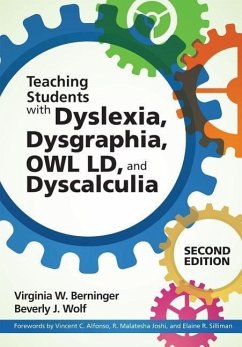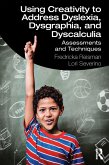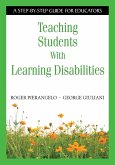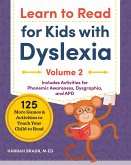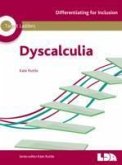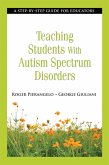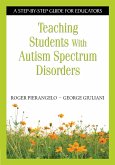Virginia W Berninger, Beverly J Wolf
Teaching Students with Dyslexia, Dysgraphia, Owl LD, and Dyscalculia
Virginia W Berninger, Beverly J Wolf
Teaching Students with Dyslexia, Dysgraphia, Owl LD, and Dyscalculia
- Broschiertes Buch
- Merkliste
- Auf die Merkliste
- Bewerten Bewerten
- Teilen
- Produkt teilen
- Produkterinnerung
- Produkterinnerung
This revised edition is a resource for pre- and in-service educators and covers four types of learning disabilities that require differentiated instruction: dysgraphia, dyslexia, dyscalculia, and oral and written language learning disability.
Andere Kunden interessierten sich auch für
![Using Creativity to Address Dyslexia, Dysgraphia, and Dyscalculia Using Creativity to Address Dyslexia, Dysgraphia, and Dyscalculia]() Fredricka ReismanUsing Creativity to Address Dyslexia, Dysgraphia, and Dyscalculia67,99 €
Fredricka ReismanUsing Creativity to Address Dyslexia, Dysgraphia, and Dyscalculia67,99 €![Teaching Students With Learning Disabilities Teaching Students With Learning Disabilities]() Roger PierangeloTeaching Students With Learning Disabilities41,99 €
Roger PierangeloTeaching Students With Learning Disabilities41,99 €![Learn to Read for Kids with Dyslexia, Volume 2 Learn to Read for Kids with Dyslexia, Volume 2]() Hannah BraunLearn to Read for Kids with Dyslexia, Volume 218,99 €
Hannah BraunLearn to Read for Kids with Dyslexia, Volume 218,99 €![Teaching Students With Emotional Disturbance Teaching Students With Emotional Disturbance]() Bob AlgozzineTeaching Students With Emotional Disturbance29,99 €
Bob AlgozzineTeaching Students With Emotional Disturbance29,99 €![Target Ladders: Dyscalculia Target Ladders: Dyscalculia]() Kate RuttleTarget Ladders: Dyscalculia25,99 €
Kate RuttleTarget Ladders: Dyscalculia25,99 €![Teaching Students with Autism Spectrum Disorders Teaching Students with Autism Spectrum Disorders]() Roger PierangeloTeaching Students with Autism Spectrum Disorders16,99 €
Roger PierangeloTeaching Students with Autism Spectrum Disorders16,99 €![Teaching Students With Autism Spectrum Disorders Teaching Students With Autism Spectrum Disorders]() Roger PierangeloTeaching Students With Autism Spectrum Disorders42,99 €
Roger PierangeloTeaching Students With Autism Spectrum Disorders42,99 €-
-
-
This revised edition is a resource for pre- and in-service educators and covers four types of learning disabilities that require differentiated instruction: dysgraphia, dyslexia, dyscalculia, and oral and written language learning disability.
Hinweis: Dieser Artikel kann nur an eine deutsche Lieferadresse ausgeliefert werden.
Hinweis: Dieser Artikel kann nur an eine deutsche Lieferadresse ausgeliefert werden.
Produktdetails
- Produktdetails
- Verlag: Brookes Publishing Company
- 2nd Second Edition, New edition
- Seitenzahl: 320
- Erscheinungstermin: 12. November 2015
- Englisch
- Abmessung: 254mm x 177mm x 20mm
- Gewicht: 577g
- ISBN-13: 9781598578942
- ISBN-10: 1598578944
- Artikelnr.: 42651968
- Herstellerkennzeichnung
- Libri GmbH
- Europaallee 1
- 36244 Bad Hersfeld
- gpsr@libri.de
- Verlag: Brookes Publishing Company
- 2nd Second Edition, New edition
- Seitenzahl: 320
- Erscheinungstermin: 12. November 2015
- Englisch
- Abmessung: 254mm x 177mm x 20mm
- Gewicht: 577g
- ISBN-13: 9781598578942
- ISBN-10: 1598578944
- Artikelnr.: 42651968
- Herstellerkennzeichnung
- Libri GmbH
- Europaallee 1
- 36244 Bad Hersfeld
- gpsr@libri.de
Virginia W. Berninger, Ph.D., Dr. Berninger received her Ph.D. in psychology at Johns Hopkins University and has had a career informed both by translation science (bridging basic research and application to practice) and interdisciplinary contributions to assessment, diagnosis, and treatment, including instruction. As a professor at the University of Washington, Dr. Berninger has been the principal investigator of research grants on typical and disabled language learning funded by the Eunice Kennedy Shriver National Institute of Child Health and Human Development and also the co-investigator of a research grant on math development and instruction funded by the U.S. Department of Education. This interdisciplinary research has been informed by Dr. Berninger's prior teaching experience (in urban, suburban, and rural settings in general and special education and at the elementary and secondary levels); training in clinical psychology and experience as a licensed psychologist (in assessment of developmental and learning disabilities); and ongoing consultation with schools, teachers, and parents for more than 30 years. Her current efforts focus on evidence-based, treatment-relevant differential diagnosis of specific learning disabilities and professional development for teachers and other professionals in schools and outside schools who influence school practices. Beverly J. Wolf, M.Ed., Director, Slingerland(R) Institute for Literacy, 12729 Northup Way, Suite 1, Bellevue, Washington 98005 Ms. Wolf received her M.Ed. in education at Seattle Pacific University and brings to this collaborative effort experience as a classroom teacher, principal of an elementary school for children with dyslexia, Dean of Faculty for the Slingerland(R) Institute for Literacy, and an educational consultant providing professional development nationally and locally on structured language teaching. She has authored articles and books about dyslexia, creative activities for the classroom, and language-related guides for teachers. Ms. Wolf is a member of the Council of Advisors of the International Dyslexia Association (IDA), a past secretary and board member of IDA, the recipient of the John and Beth Slingerland Award from the Slingerland(R) Institute, the Beth Slingerland Award from the Puget Branch of the Orton Dyslexia Society (WABIDA), and the Outstanding Educator Award from the Renton School District. Through her professional experiences she has had the good fortune to hold the hands of teachers whose professional expertise and experience helped shaped her own work as she in turn shared with them. Ms. Wolf is inspired by her ongoing work with the next generation of teachers. They stimulate her and motivate her to continue to develop materials that make teaching and learning exciting and fun. As she does, she reminds others that students with learning disabilities benefit from the collaboration of many professionals sharing with each other, as captured in this quotation from Hellman and Feibleman (1984, p. xx): "It goes in a circle and always has, like a child's dance of ring around the rosy. If I am any good, the person holding my hand has a chance of being even better."

